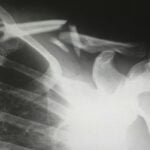
In this article, you will discover the significant impact that nutrition can have on respiratory health for elderly patients. As we age, our bodies undergo various changes, including a decline in lung function, making us more susceptible to respiratory issues. However, by understanding the importance of a well-balanced diet and incorporating specific nutrients, we can support and improve the respiratory health of older adults. Explore how nutrition can be a powerful tool in maintaining healthy lungs and promoting overall well-being in elderly patients.

The Importance of Nutrition in Respiratory Health
Respiratory health is crucial for overall well-being, and nutrition plays a vital role in supporting and maintaining optimal respiratory function. Good nutrition not only affects your overall health but also impacts the health of your respiratory system. Poor nutrition can have detrimental effects on respiratory health, while a balanced diet can provide essential nutrients that support respiratory function.
Nutrition and Overall Health
Nutrition is fundamentally important for maintaining good overall health. The food you consume provides your body with the necessary nutrients to support various physiological processes. A well-balanced diet ensures that your body receives all the essential nutrients, vitamins, and minerals it needs to function properly. In turn, this helps maintain the health of your respiratory system.

Effects of Poor Nutrition on Respiratory Health
Poor nutrition can have negative impacts on respiratory health, especially in elderly patients. Inadequate intake of essential nutrients can weaken the respiratory system, making it more susceptible to infections, reducing lung function, and impairing wound healing. Moreover, poor nutrition can lead to inflammation, which can further contribute to respiratory problems. To maintain good respiratory health, it is crucial to identify and address any nutritional deficiencies.
The Role of Nutrients in Supporting Respiratory Function
Several nutrients play a significant role in supporting respiratory function. These nutrients have specific functions that contribute to the health and proper functioning of the respiratory system.
Vitamin C
Vitamin C is an antioxidant vitamin that plays a crucial role in maintaining a healthy respiratory system. It supports the immune system, helps prevent respiratory infections, and aids in wound healing. Citrus fruits such as oranges, grapefruits, and lemons are excellent sources of vitamin C.
Omega-3 Fatty Acids
Omega-3 fatty acids have anti-inflammatory properties and can help reduce inflammation in the respiratory system. Fatty fish, such as salmon and sardines, are rich sources of omega-3 fatty acids and can help support respiratory health.
Antioxidants
Antioxidants, such as beta-carotene, vitamin E, and selenium, help protect the respiratory system from oxidative damage. Colorful vegetables like carrots, sweet potatoes, and bell peppers are packed with antioxidants and can help support respiratory health.
Protein
Protein is essential for maintaining and repairing tissues, including the respiratory muscles. It also supports the immune system and aids in wound healing. Lean meats, poultry, and plant-based protein sources like beans and legumes provide high-quality protein.
Zinc
Zinc is a mineral that plays a crucial role in immune function and respiratory health. It helps fight off infections and supports the healing of respiratory tissues. Foods rich in zinc include oysters, lean meats, and fortified cereals.
Vitamin D
Vitamin D is important for lung health and plays a role in reducing inflammation. It also supports proper immune function. Fatty fish like salmon, fortified dairy products, and egg yolks are good sources of vitamin D.

Foods to Support Respiratory Health
Including specific foods in your diet can help support respiratory health and provide the necessary nutrients for optimal respiratory function.
Citrus Fruits
Citrus fruits such as oranges, grapefruits, and lemons are rich in vitamin C. These fruits not only provide a refreshing taste but also support respiratory health by boosting the immune system and aiding in wound healing.
Fatty Fish
Fatty fish like salmon, sardines, and trout are excellent sources of omega-3 fatty acids. These fatty acids have anti-inflammatory properties and can help reduce inflammation in the respiratory system.
Colorful Vegetables
Colorful vegetables like carrots, sweet potatoes, and bell peppers are packed with antioxidants. These antioxidants help protect the respiratory system from oxidative damage and promote overall respiratory health.
Beans and Legumes
Beans and legumes are a great source of protein, which is essential for respiratory health. They provide high-quality protein and are also rich in fiber, which supports digestive health and overall well-being.
Nuts and Seeds
Nuts and seeds, including almonds, walnuts, and flaxseeds, provide essential nutrients such as omega-3 fatty acids, vitamin E, and selenium. These nutrients help protect the respiratory system from damage and support overall respiratory health.
Lean Meats
Lean meats like chicken and turkey are excellent sources of protein, which is essential for maintaining the strength and integrity of the respiratory muscles. Including lean meats in your diet can support respiratory function and overall health.
Eggs
Eggs are a nutrient-dense food that provides protein, zinc, and vitamin D. These nutrients are essential for respiratory health and can contribute to overall well-being.
Dairy Products
Dairy products like milk, cheese, and yogurt are good sources of protein and contain essential nutrients such as vitamin D and zinc. Including dairy products in your diet can provide the necessary nutrients for optimal respiratory function.
Benefits of a Balanced Diet for Respiratory Health
Maintaining a balanced diet can have numerous benefits for respiratory health in elderly patients. A well-rounded diet can contribute to improved lung function, reduced inflammation, enhanced immune system, protection against respiratory infections, and better respiratory muscle strength.
Improved Lung Function
Proper nutrition, including essential nutrients, can support optimal lung function. Nutrients like vitamin C, omega-3 fatty acids, and protein are important for maintaining respiratory health and improving lung function in elderly patients.
Reduced Inflammation
Certain nutrients, such as antioxidants and omega-3 fatty acids, have anti-inflammatory properties. Including foods rich in these nutrients can help reduce inflammation in the respiratory system and promote better respiratory health.
Enhanced Immune System
A balanced diet that includes key nutrients like vitamin C, zinc, and vitamin D can strengthen the immune system. This can help fight off respiratory infections and protect against illnesses that can compromise respiratory health.
Protection against Respiratory Infections
Nutrition plays a vital role in supporting the immune system’s ability to defend against respiratory infections. Consuming foods rich in immune-boosting nutrients like vitamin C, antioxidants, and zinc can help protect elderly patients from various respiratory infections.
Better Respiratory Muscle Strength
Protein is essential for maintaining the strength and integrity of the respiratory muscles. A balanced diet that includes adequate protein can help support the respiratory muscles and improve respiratory function in elderly patients.
Specific Considerations for Elderly Patients
Elderly patients may have specific considerations when it comes to nutrition and respiratory health. Aging can lead to changes in nutrient needs, challenges in meeting nutritional requirements, and increased risk of malnutrition. It is important to address these considerations to support elderly respiratory health.
Age-Related Changes in Nutrient Needs
As you age, your nutritional needs may change. Elderly patients may require adjustments in their nutrient intake to meet their specific needs. For example, vitamin D absorption may decrease with age, making it important to ensure adequate intake through diet or supplements.
Importance of Hydration
Proper hydration is crucial for maintaining respiratory health in elderly patients. Dehydration can lead to thicker mucus, making it more difficult to breathe. Encouraging elderly patients to drink enough fluids is important for supporting respiratory function.
Challenges in Meeting Nutritional Requirements
Elderly patients may face challenges in meeting their nutritional requirements due to various factors such as reduced appetite, dental issues, or limited mobility. It is essential to identify and address these challenges to ensure adequate nutrition for respiratory health.
Strategies for Promoting Healthy Eating
Promoting healthy eating habits in elderly patients can support respiratory health. Providing education and awareness about the importance of nutrition, offering meal preparation assistance, utilizing community support and resources, and promoting socialization during mealtime can all help encourage healthy eating habits.
The Impact of Malnutrition on Elderly Respiratory Health
Malnutrition can have a profound impact on respiratory health in elderly patients. Inadequate intake of essential nutrients can increase the risk of infections, lead to a decline in lung function, weaken respiratory muscles, and impair wound healing.
Increased Risk of Infections
Malnutrition can weaken the immune system, making elderly patients more susceptible to respiratory infections. Proper nutrition is essential for maintaining a strong immune system and reducing the risk of infections.
Decline in Lung Function
Inadequate nutrition can contribute to a decline in lung function in elderly patients. Essential nutrients like vitamin C, omega-3 fatty acids, and protein play a crucial role in maintaining respiratory health and supporting optimal lung function.
Weakened Respiratory Muscles
Nutritional deficiencies can lead to a weakening of the respiratory muscles. Weak respiratory muscles can impair proper breathing and contribute to respiratory problems in elderly patients. Adequate protein intake is crucial for maintaining respiratory muscle strength.
Impaired Wound Healing
Malnutrition can impair wound healing in elderly patients, including wounds in the respiratory system. Proper nutrition, including adequate protein and vitamins, is essential for the healing process and respiratory health.
Nutrition Interventions for Respiratory Health
Various nutrition interventions can be implemented to support respiratory health in elderly patients. These interventions focus on individualized meal plans, supplements and fortified foods, dietary counseling, and monitoring and follow-up.
Individualized Meal Plans
Creating individualized meal plans tailored to the specific nutritional needs of elderly patients can help ensure they receive adequate nutrition for optimal respiratory health. These meal plans can address any nutrient deficiencies or specific dietary restrictions.
Supplements and Fortified Foods
Supplements and fortified foods can be used to provide additional nutrients that may be lacking in the diet of elderly patients. This can help support respiratory health by addressing any nutrient deficiencies.
Dietary Counseling
Dietary counseling can be beneficial for elderly patients to receive guidance and support in making healthy food choices. Registered dietitians and nutritionists can provide personalized advice on meeting nutritional needs and optimizing respiratory health.
Monitoring and Follow-Up
Regular monitoring and follow-up are essential to assess the effectiveness of nutrition interventions and make any necessary adjustments. Monitoring can help ensure that elderly patients are receiving adequate nutrition for respiratory health.
Collaboration between Healthcare Professionals
Collaboration between healthcare professionals is crucial for optimizing respiratory health in elderly patients. A multidisciplinary approach that involves dietitians, nutritionists, respiratory therapists, and physicians can provide comprehensive care and support for respiratory health.
Importance of a Multidisciplinary Approach
A multidisciplinary approach ensures that all aspects of respiratory health in elderly patients are addressed. Collaboration between healthcare professionals allows for a holistic approach to care, addressing nutrition, respiratory therapy, and medical interventions.
Involvement of Dietitians and Nutritionists
Dietitians and nutritionists play a vital role in assessing and addressing the nutritional needs of elderly patients. They can develop personalized meal plans, provide education and counseling, and monitor nutritional status to support respiratory health.
Collaboration with Respiratory Therapists and Physicians
Collaboration between dietitians, nutritionists, respiratory therapists, and physicians is crucial for comprehensive respiratory care. Each healthcare professional brings unique expertise and can collaborate to develop the most effective treatment plan for elderly patients.
Regular Health Assessments
Regular health assessments, including nutritional assessments, are important for monitoring respiratory health in elderly patients. These assessments can help identify any nutritional deficiencies, respiratory problems, or changes in health that need to be addressed.
Promoting Healthy Eating Habits for Elderly Patients
Promoting healthy eating habits in elderly patients is essential for optimizing respiratory health. Several strategies can help encourage healthy eating habits and ensure adequate nutrition.
Education and Awareness
Providing education and raising awareness about the importance of nutrition for respiratory health can help elderly patients make informed dietary choices. Educating them on the specific nutrients important for respiratory health can empower them to prioritize their nutrition.
Meal Preparation Assistance
Offering assistance with meal preparation can make healthy eating more accessible for elderly patients. Helping with grocery shopping, meal planning, and cooking can alleviate any challenges they may face in meeting their nutritional needs.
Community Support and Resources
Utilizing community support and resources can provide additional assistance for elderly patients. Senior centers, community meal programs, and nutrition programs can offer access to nutritious meals, socialization, and support in maintaining healthy eating habits.
Socialization and Mealtime Enjoyment
Promoting socialization and enjoyment during mealtime is important for improving the overall eating experience for elderly patients. Encouraging shared meals, engaging in pleasant conversations, and creating a positive dining atmosphere can enhance the nutrition and well-being of elderly individuals.
Conclusion
Recognizing the role of nutrition in respiratory health is crucial, especially for elderly patients. Proper nutrition supports respiratory function, enhances immune health, and reduces the risk of infections. Including nutrient-rich foods, individualized meal plans, and collaboration between healthcare professionals can significantly improve respiratory health and overall quality of life for elderly individuals. By prioritizing proper nutritional support, we can ensure that elderly patients maintain optimal respiratory health and continue to enjoy a high quality of life.








